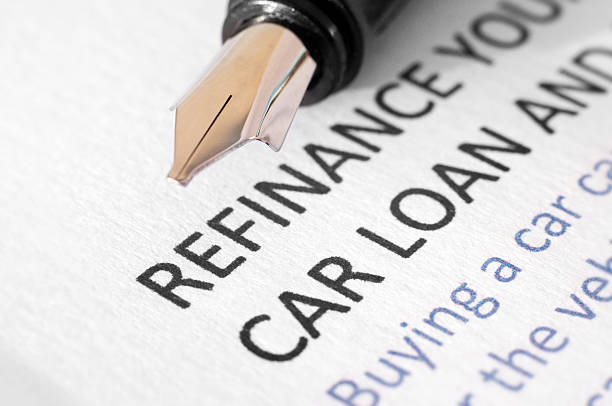The process of refinancing your car is usually quite simple. First, you will need to contact your lender to determine if you can refinance your current loan at a lower interest rate. Once you have contacted your lender, they will then review your financial situation and determine the best terms and rates for you. When choosing a lender, you should take into consideration your special circumstances and work towards obtaining a lower rate and shorter loan term. The best way to do this is to know how much money you make and how much you spend each month.
Once you have determined your monthly payment, you will need to compare it to the new one. You may need to gather documentation from your state DMV, which may slow down the refinancing process. The primary reason to consider refinancing your car loan is to secure a lower interest rate. This will mean paying less for the loan after you take into account the costs of borrowing. Having a lower monthly payment will help you manage your cash flow better.
Once you have gathered the information you need, you can begin the process. You should gather the required documentation, including your income and insurance, as well as the details of your existing loan. Additionally, you should have your car’s information ready, including its make, model, mileage, VIN, and registration details. By doing this, you’ll be able to refinance your car more easily.
Once you have the necessary paperwork in hand, you can start the refinancing process. Before applying for the loan, you need to gather the information about your existing loan, such as the balance, monthly payment, and any accrued interest. Also, you need to gather information about your car, such as the make, model, and year. You can start the process by gathering this information before you start the refinancing process.
Once you have all the documents you need to refinance your car, you will need to fill out a brief application. You’ll need to submit proof of income, insurance, and your current loan. You should also have the vehicle’s VIN, make, and mileage. Once you’ve completed all of these steps, the loan application will be processed. Your lender will then assess your finances to determine the best rate for you.
To qualify for a loan, you will need to gather all the required information. You’ll need to provide your current loan balance, monthly payments, and payoff amount, as well as the total of accrued interest. For your new loan, you’ll also need to gather information about your car. If you have a previous car loan, your lender will most likely want to know this. Having this information handy will help them determine how much it’s worth to you.
Before refinancing your car, you should gather all of the required documents. Your bank should be able to offer you a lower interest rate. If you have a low credit score, you may want to seek a higher interest rate to get a better deal. In addition to the paperwork, you’ll also need to collect all of your vehicle information, including the make and mileage. This will help you get prequalified for the loan.
There are many different factors that determine if you can refinance your car. The most important factor is the current value of your vehicle. The lower interest rate can save you money every month. In addition to lower monthly payments, you can also benefit from a lower interest rate. Moreover, a lower interest rate will allow you to manage your cash flow better. There are many reasons to refinance your car.
It’s important to remember that there are many factors to consider when determining whether to refinance your car. In most cases, you should be aware of the value of your car and the terms of your loan. If your car is still worth a lot of money, it’s best to refinance it with a higher interest rate. This will save you some money in the long run. And if you can pay off your loan sooner, this will be even better.







